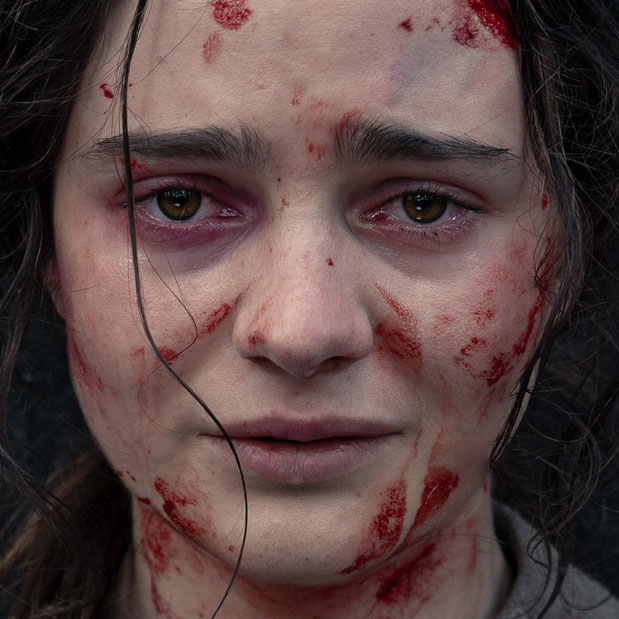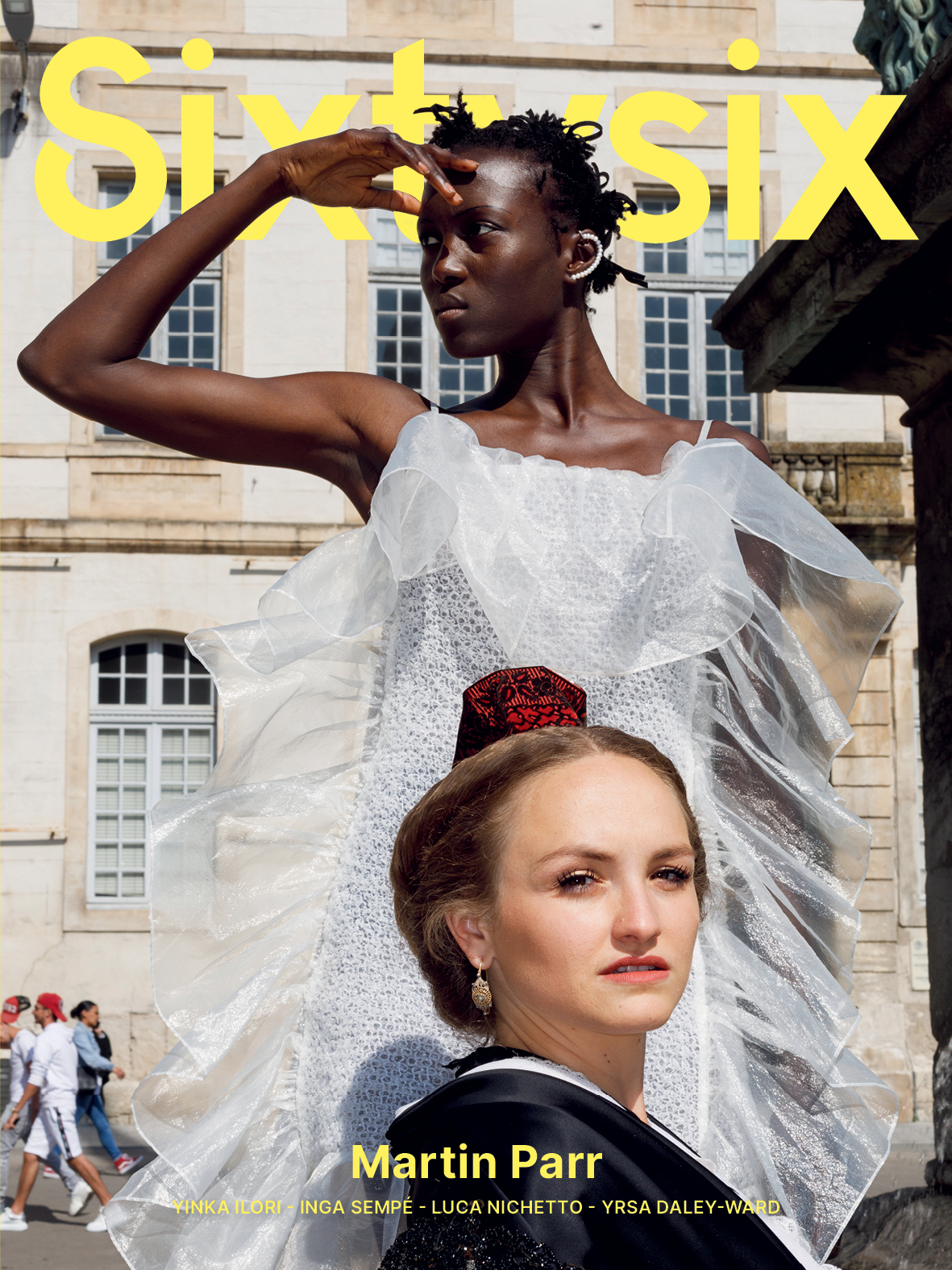The phrase “Sundance movie” tends to conjure up a very specific kind of indie film: modest in scale, marked by a familiar brand of whimsy, cut with a melancholic streak, perhaps showcasing a dramatic turn by a comedic actor. In other words, something like Little Miss Sunshine. But that narrative has always been a bit reductive, and recent breakouts hits (think last year’s Hereditary or Sorry to Bother You) have only further complicated that old saw. The buzzed-about selections from the 2019 Sundance Film Festival—which wrapped up on Sunday—range from a massively anticipated documentary about allegations of abuse against Michael Jackson to—way across the tonal spectrum—Mindy Kaling’s charmer of a film screenwriting debut. Here are the films that either won big, whipped up major word-of-mouth momentum, or a little bit of both.
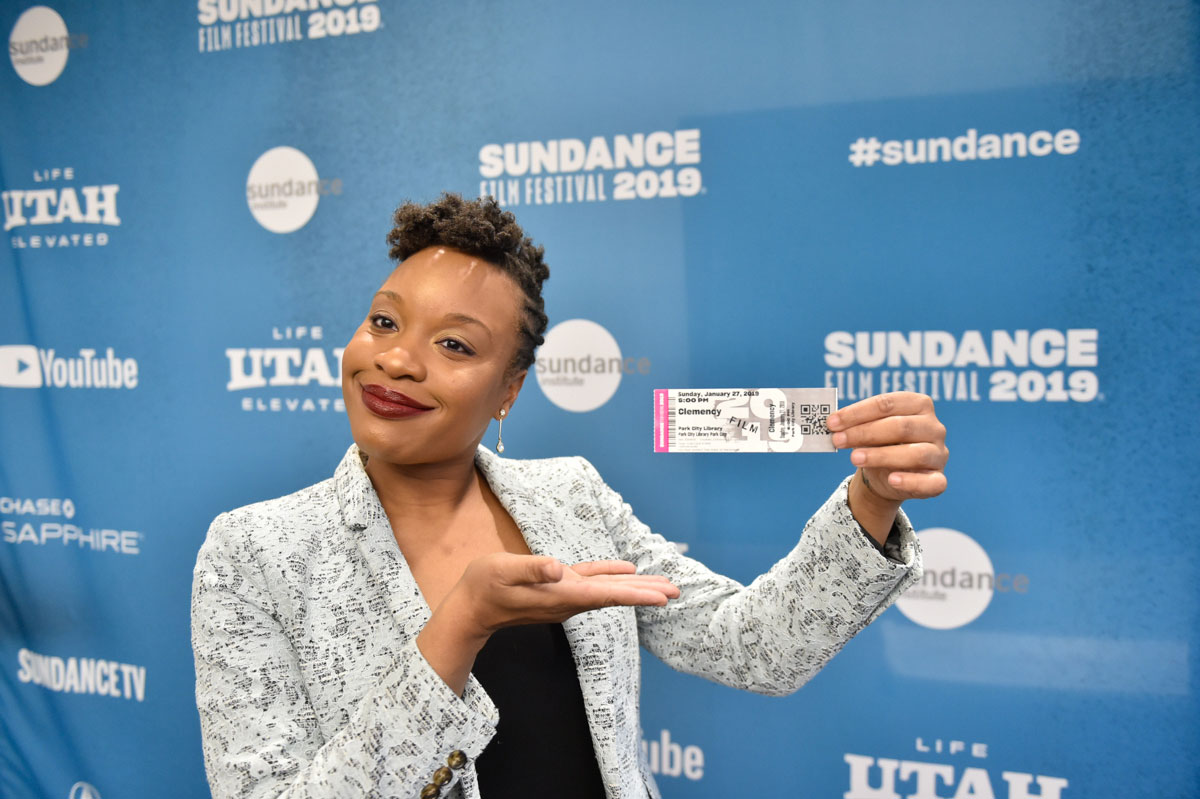
Director Chinonye Chukwu attends the world premiere of “Clemency,” at Sundance. PHOTOGRAPHY BY STEPHEN SPECKMAN.
Clemency‘s Historic Win and Women Filmmakers Honored
History was made when the US Dramatic Grand Jury Prize went to Clemency, marking the first time a film directed by a black woman took home what is considered the festival’s most major prize. Chinonye Chukwu helmed the capital-punishment drama in which Alfre Woodard plays a longtime prison warden getting ready to administer an execution, one of several she’s overseen in her long career. Critics have praised Woodard’s performance and the way Chukwu prevents the material from veering into issues-drama territory.
Chukwu was one of several female filmmakers honored at the festival. In fact, every Grand Jury Prize winner was either directed or co-directed by a woman. Nanfu Wang and Jialing Zhang won the US Documentary Grand Prize for One Child Nation, about China’s single-child policy; Tamara Kotevska co-directed the World Cinema Documentary Grand Jury Prize-winning Honeyland, which documents a costly miscarriage of standard beekeeping practice; and Joanna Hogg’s The Souvenir, which garnered the World Cinema Jury Prize in the Dramatic field. All in all, a welcome rejoinder to the Academy Awards’ failure to nominate a single female director this year.
The Souvenir, which will be distributed by indie powerhouse A24, was notable for the celebrated lead performance by Honor Swinton-Byrne, daughter of playwright John Byrne and Tilda Swinton, who co-stars. Also notable: Swinton-Byrne’s decision to largely eschew the festival’s coronating limelight.
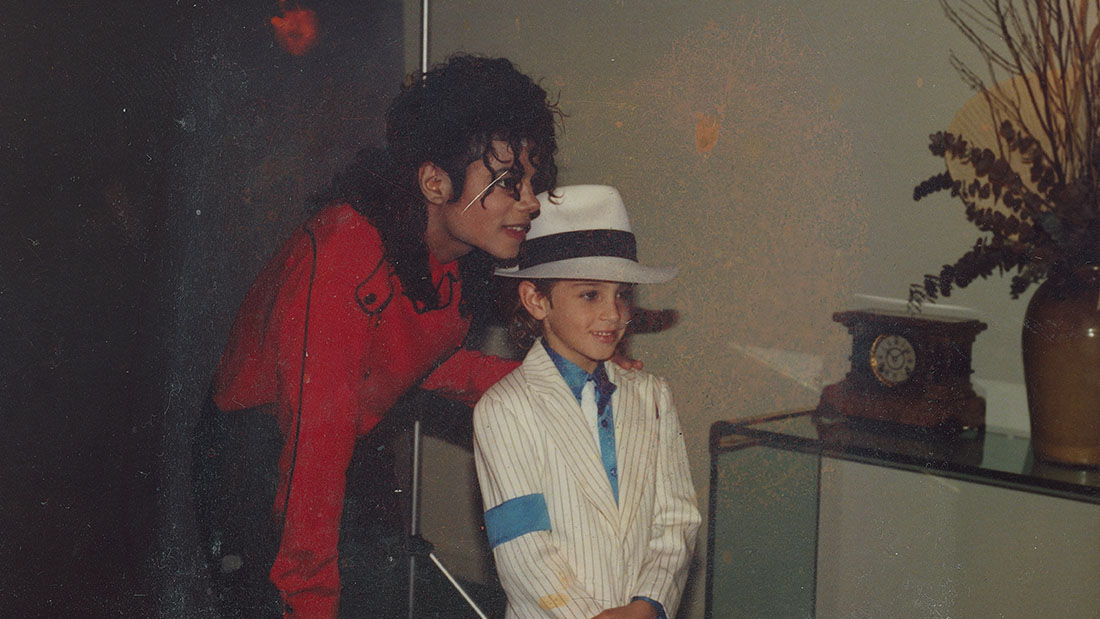
A still from “Leaving Neverland,” a two-part, four-hour documentary about allegations of abuse against Michael Jackson. COURTESY OF SUNDANCE INSTITUTE.
Leaving Neverland
Sundance attendees can be forgiven if they felt a sense of deja vu. For the second year in a row, one of the most talked-about films was a harrowing portrait of childhood abuse that was scooped up by HBO for distribution. Last year it was Jennifer Fox’s great, Laura Dern-starring The Tale; this year it’s director Dan Reed’s documentary about sexual-abuse allegations against Michael Jackson.
Leaving Neverland takes a deep dive into the allegations made by Wade Robson and Jimmy Safechuck, that they were abused by Jackson as young boys, and the lifelong emotional turmoil they’ve continued to endure. When the documentary has its HBO debut in March, expect plenty of parallels to the recent R. Kelly reckoning.
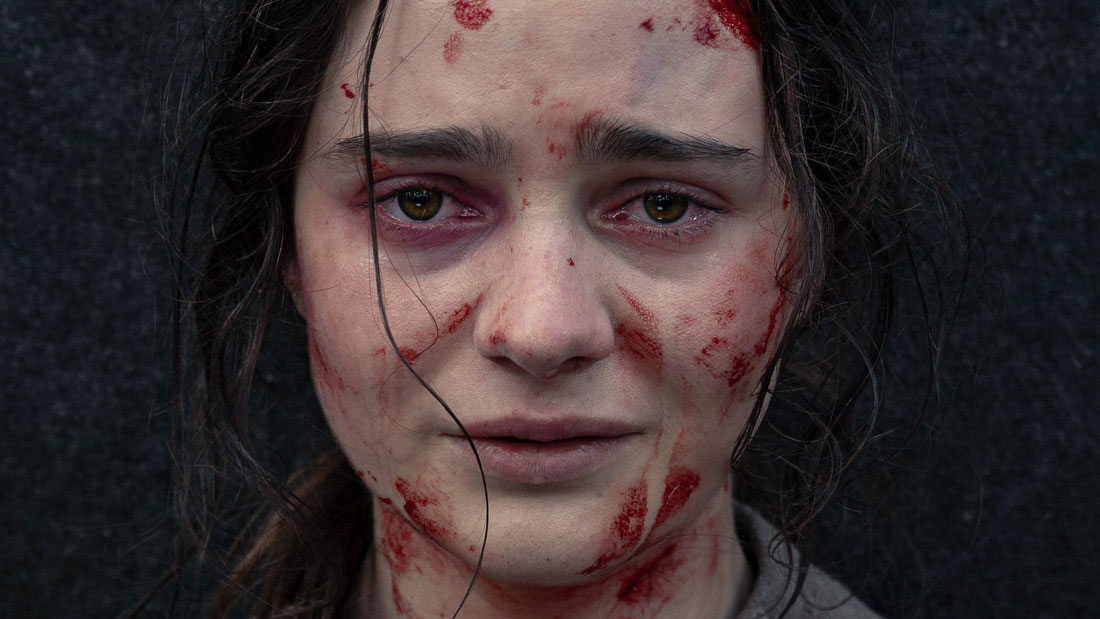
“The Nightingale”. COURTESY OF SUNDANCE INSTITUTE.
The Nightingale
If an analog exists between The Help and Leaving Neverland, another one might run between 2018’s Hereditary and 2019’s The Nightingale, another horror movie that gathered robust acclaim—and plenty of warnings that its unsparing tone will not be for all tastes.
Directed by Jennifer Kent—whose 2014 debut, The Babadook, was justly hailed as a modern horror classic—the film uses the controversial rape-revenge template to explore themes of aboriginal subjugation and male-perpetrated violence. It takes place in a British penal colony in what is now Tasmania, in 1825, as a convict and a tracker seek vengeance for a horrific crime. It’s set to arrive in theaters stateside this summer.
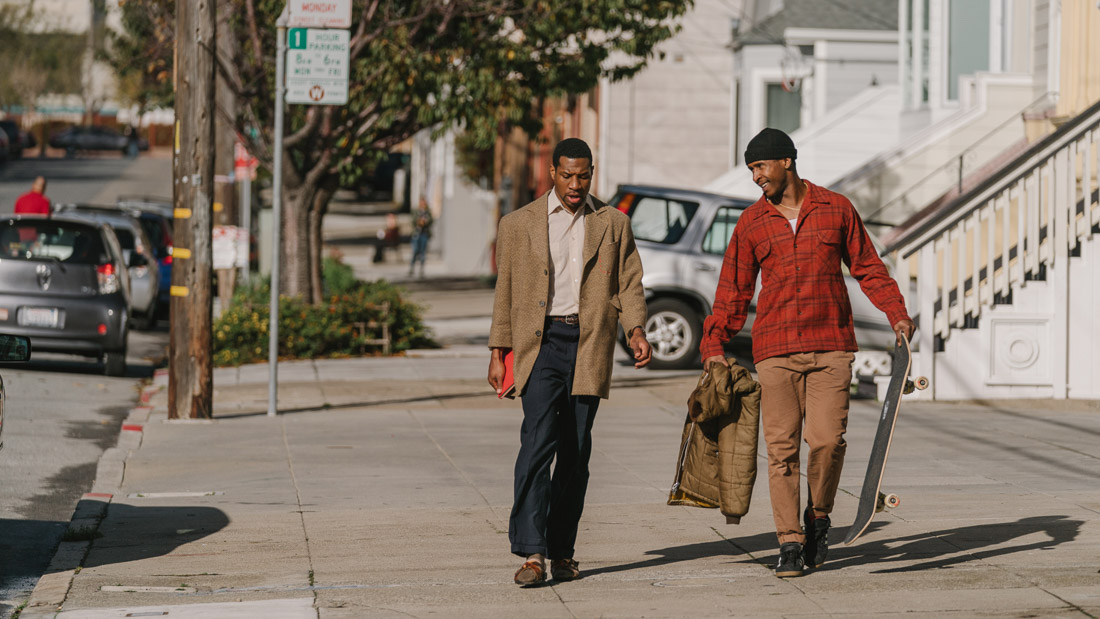
Jimmie Fails and Jonathan Majors in “The Last Black Man In San Francisco.” COURTESY OF SUNDANCE INSTITUTE.
The Last Black Man in San Francisco
From Pittsburgh to Chicago to Seattle, gentrification is perhaps the hottest hot-button issue in American urban life, so it’s a surprise that so few narrative indie films tackle the subject explicitly. Perhaps that’s one of the reasons The Last Black Man in San Francisco resonated so strongly at the festival.
The offbeat drama—for which filmmaker Joe Talbot won the US Dramatic Directing Award—stars Jimmie Fails, playing a fictionalized version of himself. Fails remains fixated on the Victorian house that his family lost once they were priced out of the neighborhood, and which is now occupied by a white family.
There are few places in the States that have been as defined by gentrification in recent decades as the Bay Area, but Talbot’s debut feature looks poised to connect with audiences from any city where residents have had to grapple with rapidly changing neighborhoods.

Mindy Kaling accepts the IMDb STARmeter Award at the 2019 Sundance Film Festival, with Col Needham, founder of IMDb. PHOTOGRAPHY BY GETTY IMAGES FOR IMDB.
Mindy Kaling, Late Night, and Amazon’s Big Spending
Mindy Kaling has been such a successful comedic force—having created her own acclaimed series (the late, great Mindy Project) and penned two best-selling memoir (Is Everyone Hanging Out Without Me?, Why Not Me?)—for so long, it’s hard to believe she hadn’t made her film screenwriting debut before Late Night, which made its world premiere at the festival.
Kaling co-stars as the writer of a late-night comedy talk show (Emma Thompson plays the world-weary host) tasked with breathing fresh life into the program, which is flatlining in terms of both ratings and cultural relevance.
The rights were bought by Amazon for a record-breaking $13 million, reportedly the highest amount paid for a U.S.-distribution-only film at the festival. In fact, Amazon’s willingness to show off its deep pockets was one of the major subplots of the festival. The online retailer and streaming titan dropped $47 million for the right to distribute five films in total. That sum is more than any studio has ever paid at any Sundance before, according to the Hollywood Reporter.
Fun tangent: Kaling was also awarded this year’s IMDb “Fan Favorite” STARmeter Award, which ranks search behavior of visitors to the site, at Sundance.
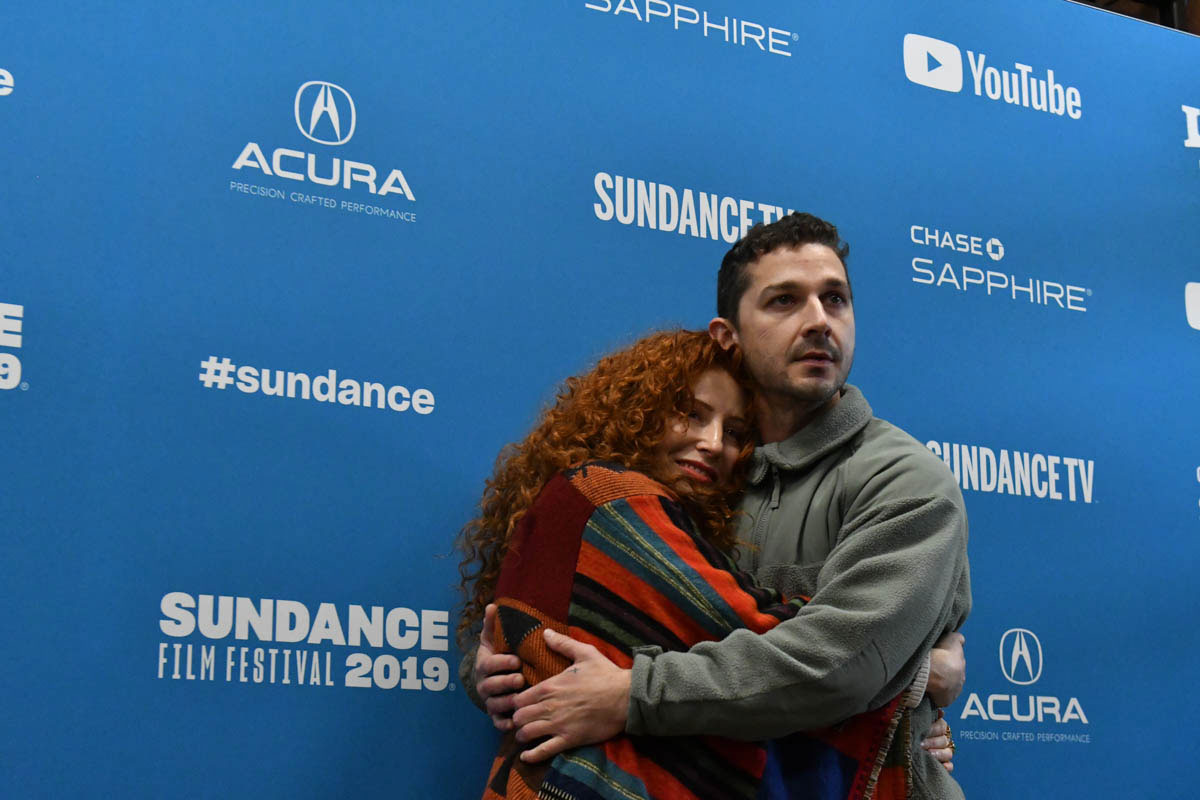
“Honey Boy” director Alma Har’el and actor Shia LaBeouf at the film’s premiere at Sundance. PHOTOGRAPHY BY STEPHEN SPECKMAN.
The Report and Honey Boy
The other films purchased for distribution by Amazon were the aforementioned One Child Nation, Brittany Runs a Marathon (playwright Paul Downs Colaizzo’s directorial debut), The Report, and Honey Boy, with the last two being most notable.
The Report stars Adam Driver as Daniel Jones, the man who led the investigation into the CIA’s Detention and Interrogation Program. It’s directed by Scott Z. Burns, who penned a few of Steven Soderbergh’s best films, The Informant! and Contagion. Like the latter, it’s garnered early critical favor for the way it wrings unlikely drama from a story about the meticulous and deliberate carrying out of institutional administration.
Honey Boy, on the other hand, looks to be operating on a very different wavelength. Written by Shia Lebouf as part of a rehabilitation program, the actor plays a version of his own alcoholic father. Lucas Hedges plays Otis Lort, a fictionalized version of Lebouf.
See also: “Get to Know the Maori Filmmakers who Landed the Sundance Institute Award for Indigenous Artists.”
